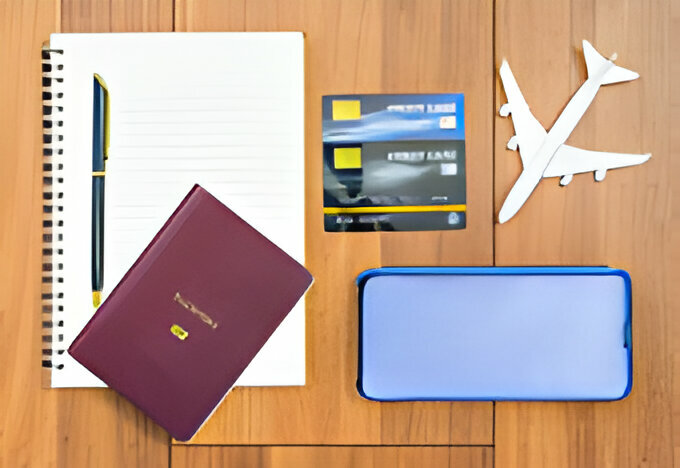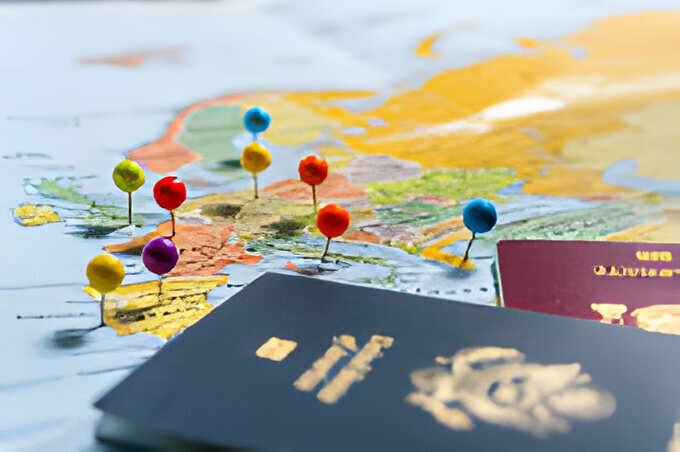I Want to Travel Abroad but Have No Money: Tips and Strategies
Many people dream of traveling abroad, but the cost of flights, accommodations, and other expenses can quickly add up. For those who don’t have a lot of money, it may seem like international travel is out of reach. However, there are ways to make it happen without breaking the bank.
One option is to look for cheap flights and accommodations. Many websites and apps can help travelers find the best deals on flights and hotels. It’s also worth considering alternative accommodations like hostels, couchsurfing, or house-sitting. These options can be much cheaper than traditional hotels and can offer a more authentic travel experience.
Another option is to work or volunteer abroad. Many organizations offer opportunities for travelers to work or volunteer in exchange for room and board. This can be a great way to experience a new culture while also saving money on accommodations and food.
Additionally, some countries offer working holiday visas that allow travelers to work and travel for an extended time.
Read also: How to Write a Travel Itinerary for Visa Applications
Nitty Gritty of Travel Costs
Traveling abroad can be an enriching experience, but it can also be expensive. Understanding the costs associated with travel can help you plan and budget accordingly.
There are three main expenses to consider when traveling: accommodation, transportation, and food and daily expenses.
1. Accommodation
Accommodation costs can vary greatly depending on the location and type of lodging you choose. Hostels and budget hotels are often the most affordable options, while luxury hotels can be quite expensive. It’s important to research and compare prices before booking to ensure you get the best deal.
2. Transportation
Transportation costs can also add up quickly. Flights, trains, and buses can be expensive, especially during peak travel seasons. It’s important to book in advance and be flexible with travel dates to save money. Additionally, using public transportation or walking instead of taking taxis can help save on transportation costs.
3. Food and Daily Expenses
Food and daily expenses can also contribute to the overall cost of travel. Eating at restaurants can be expensive, so opting for street food or cooking your meals can help save money. It’s also important to budget for activities and souvenirs.
When you understand the demand for these three main expenses, you can better plan and budget for your travels. It’s important to research and compare prices, book in advance, and be flexible with travel dates to save money. With careful planning and budgeting, traveling abroad can be a rewarding and affordable experience.
Read also: How to Write a Travel Plan: A Step-by-Step Guide
Creative Funding Solutions
When it comes to funding a trip abroad, lack of money can be a major obstacle. However, several creative funding solutions can help make traveling abroad a reality. Here are some options to consider:
1. Work Abroad Programs
One way to fund a trip abroad is to participate in a work abroad program. These programs allow individuals to work in another country while also exploring and experiencing a new culture. Some programs may even offer room and board in addition to a salary. Examples of work abroad programs include teaching English as a foreign language, working on a farm, or participating in a cultural exchange program.
2. Scholarships and Grants
Scholarships and grants are another option for funding a trip abroad. Many organizations offer scholarships and grants specifically for travel or study abroad programs. Some universities also provide funding opportunities for students who wish to study abroad. It’s important to research and apply for these opportunities in advance as they often have specific eligibility requirements and application deadlines.
3. Crowdfunding and Sponsorships
Crowdfunding and sponsorships are becoming increasingly popular ways to fund travel abroad. Crowdfunding platforms such as Kickstarter and GoFundMe allow individuals to create a campaign and share their stories with potential donors. Sponsorships can also be obtained by reaching out to companies and organizations that align with the individual’s travel goals and values. It’s important to be transparent and genuine when seeking crowdfunding or sponsorships and to offer something in return, such as updates on the trip or a shoutout on social media.
Low-Cost Travel Strategies
Budget Destinations
Traveling abroad on a budget requires careful planning and research. One of the best ways to save money is to choose budget-friendly destinations.
Southeast Asia and Central America are popular regions for budget travelers, with countries such as Thailand, Vietnam, and Guatemala offering affordable accommodation, food, and transportation. Eastern Europe is also a great option, with countries like Poland, Hungary, and Romania being more affordable than Western Europe.
Read also: How to Become a Travel Agent
Travel Hacking
Travel hacking involves using credit card rewards, airline miles, and other loyalty programs to save money on travel expenses. This strategy can be particularly effective for frequent travelers or those who are willing to put in the time and effort to research and maximize their rewards.
Some popular travel hacking techniques include signing up for credit cards with generous sign-up bonuses, using cashback websites for booking flights and hotels and taking advantage of airline loyalty programs.
Volunteer Exchanges
Volunteer exchanges are another option for budget travelers who are willing to work in exchange for accommodation and meals. Websites such as Workaway and HelpX connect travelers with hosts who are looking for help with various tasks, such as gardening, teaching, or animal care. This can be a great way to experience local culture and save money on accommodation and food expenses.
Many low-cost travel strategies can help travelers explore the world on a budget, travelers can make the most of their travel budget and have a memorable and affordable experience abroad.
Earning Money While Traveling
Freelancing Online
One way to earn money while traveling is by freelancing online. With the internet, it is possible to work remotely from anywhere in the world. Freelancing platforms such as Upwork, Fiverr, and Freelancer.com offer a variety of jobs ranging from writing to graphic design, programming, and more.
To start freelancing, one needs to create a profile on the freelancing platform of their choice. They should showcase their skills and experience and bid on relevant projects. It is important to deliver high-quality work and maintain good communication with clients to build a good reputation and get more work in the future.
Read also: How to Become a Digital Nomad: Earn While Traveling
Seasonal Jobs
Another way to earn money while traveling is by taking up seasonal jobs. Many countries offer seasonal jobs such as working in ski resorts, fruit picking, or hospitality during peak tourist seasons. These jobs usually offer free accommodation and meals, which can help save money.
One can find seasonal jobs by searching online job boards, asking locals, or contacting employment agencies. It is important to research the job and the employer before accepting the job offer to avoid scams.
Teaching English
Teaching English is a popular way to earn money while traveling. Many countries have a high demand for English teachers, and one can find jobs in language schools, universities, or private tutoring.
To teach English, one needs to have a teaching qualification such as TEFL or TESOL. They should also have a good command of the English language and be able to communicate effectively with students. Teaching English can be a rewarding experience as one gets to experience the local culture and interact with the locals.
Overall, earning money while traveling is possible with the right skills and attitude. By freelancing online, taking up seasonal jobs, or teaching English, one can fund their travels and have a memorable experience.





